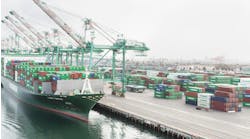Electronics distributors are responding to market changes across Asia with a variety of strategies, ranging from online expansion to physical growth that will allow them to cover a wider geography, especially in China where many manufacturers continue to move inland. An increase in research and development in some countries also is helping to grow business on the design side of the equation. It all adds up to new business opportunities and revenue growth for some of the industry’s largest distributors.
Avnet: Where Business Is Going To Be
Much of the secret to success for Avnet Electronics Marketing is anticipation. In the last six to seven years, the distributor has invested in developing new locations in inland China, anticipating the now well-established migration from coastal cities to inland ones among many manufacturers doing business in the country today. Avnet has more than 50 locations across Asia—more than 30 of them in China, and many of those in what the company calls emerging cities inland, beyond the strongholds of Shanghai and Beijing.
“The potential business in the western part of China is [great],” Wong explains. “Having established there well ahead is to our advantage.”
Wong says this is a key part of Avnet’s strategic growth in Asia, a market he expects to perform well for the company in 2014. He notes that he doesn’t expect “explosive growth” but that the trend is “up.”
“And we need to work hard in terms of servicing the customers, working with suppliers, and investing our resources and money and time in the right place,” Wong explains. “I feel much better [about the economy] than [I did] six months ago. This year will be good year.”
“Avnet has a very strong reputation in Asia as being a high-integrity company,” says Wong, emphasizing the growing importance on such issues among suppliers, customers, and employees.
Also playing into this is a fundamental shift in the Chinese economy in which domestic consumption and research and development are becoming more important. This bodes well for companies such as Avnet, which have the resources to support those needs.
“Customers in China now have R&D [and] they invest in their brand,” Wong explains. “They want good product [and] insist on getting [that] product from franchised distributors for that reason.”
Digi-Key: No Longer Online Only
For Minnesota-based Digi-Key Corp., the region’s growing interest in doing business with well-known, global companies is helping the firm move beyond the largely virtual presence it has had throughout Asia over the last several years. The distributor has had support centers in place in Japan, Korea, and Hong Kong for some time, but just opened its first major location in Shanghai in December. Beeson says the physical locations will help Digi-Key build momentum in the region and follow up on 2013’s 15% growth with similar double-digit gains.
“We’re just now becoming a little less virtual and [have a] more physical presence [in Asia],” Beeson explains, pointing to efforts to develop in China especially. “We’re still relatively ‘light touch’ in the area, but we see a very large engineering opportunity for us” in Asia-Pacific.
Digi-Key’s recent efforts to enhance customer payment options are helping as well. The company now conducts business in the local currency, the Chinese Renminbi (RMB), as well as other local payment forms such as China’s UnionPay system.
“That gives us the ability to reposition [our] website orientation, have some technical resources there—which are all enhancements to our market positioning,” Beeson explains, noting that it is much easier to solve technical problems and provide customers with additional resources when you have a stake in the local community.
“At some point you want to have a local conversation as well,” he adds. “This gives us a footprint that is more localized.”
Engineers’ increasing reliance on the Web for research and purchasing combined with a growing need to purchase more components from a single source in a short time frame also play into the hands of larger, global distributors. Especially with today’s shorter product lifecycles, design engineers are challenged to respond more quickly to the demands of time management. Beeson argues that design engineers can fulfill their needs more quickly via Digi-Key’s broad inventory selection and ability to get products anywhere in the world within two to four days. These are supply chain demands the electronics channel as a whole is continually working to improve.
It’s also important to consider that Asia is a market traditionally served by traders or agents, which don’t necessarily have the capabilities of more traditional, global distributors, Beeson adds.
“Those models really don’t lend themselves to a single spot where I can go and get a broad array of products off the shelf,” he says. “[Ours] is an enhancement to the model that the region has dealt with historically.”
Newark element14: China And Beyond
Newark element14’s McGregor likewise sees an increasing need for the services of large, western distributors throughout Asia, especially in China, which he says will continue to be a growth driver for the company. Newark element14 is well established throughout Europe and North America, and it has been focusing on building business in Asia-Pacific over the last five years, he says.
“It remains very much a bright spot within element14—a region that’s performing very well for us,” McGregor says, pointing to the distributor’s business in mainland China as well as India, Australia, New Zealand, and elsewhere across the region. He agrees that integrity of supply is a growing trend that bodes well for element14 and its peers.
“We see that becoming a more important issue for certain customers in Asia—certainly in New Zealand and elsewhere, but particularly in China. Customers are choosing suppliers with many locations, a good reputation [and so forth], making sure it’s a quality product and that it’s traceable,” McGregor says.
“Established, authorized distribution has been highly valued in Europe and North America for a long period of time. It’s now more of a concern in what customers are looking for in Asia markets,” he adds.
Newark element14 has worked to establish a solid footprint in Asia-Pacific, combining locally based sales and service with regional inventory locations that allow it to deliver products within two days throughout the region. McGregor notes the area’s diverse customer base as well. Newark element14 focuses on customers with short-run production needs in China, supports research and development and the integration of software and hardware in India, and works with small-scale manufacturers in key markets such as mining and telecommunication in Australia.
“[This] speaks to the breadth of our engagements with our customers across the region,” McGregor explains. “Having that local sales and market presence as well as regionally based inventory has really helped.”











